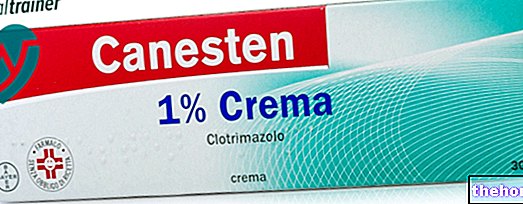Active ingredients: Penciclovir
Vectavir 1% cream
Why is Vectavir used? What is it for?
Vectavir contains the active substance penciclovir, which belongs to a group of medicines called antivirals. Vectavir works by killing the viruses that cause herpes.
Vectavir is indicated for the treatment of cold sores (herpes labialis), an infectious disease caused by the Herpes Simplex virus characterized by blisters on the lips filled with a clear fluid.
Contraindications When Vectavir should not be used
Do not use Vectavir
- if you are allergic to penciclovir, famciclovir or any of the other ingredients of this medicine (listed in section 6)
- if the patient is a child under the age of 12.
Precautions for use What you need to know before taking Vectavir
Talk to your doctor or pharmacist before using Vectavir.
Consult your doctor before using Vectavir:
- if you are pregnant or breast-feeding (see section "Pregnancy and breast-feeding").
- if your immune system is very weak, for example if you are an AIDS patient or have had a bone marrow transplant. Your doctor will consider whether oral treatment is more suitable.
Take special care when using Vectavir:
- apply the cream only to the lesions of the lips and around the mouth
- do not apply the cream to mucous membranes such as eyes, mouth, nose or genitals
- do not apply the cream to or around your eyes.
Children and adolescents
Vectavir should not be used in children below 12 years of age
Interactions Which drugs or foods may change the effect of Vectavir
Tell your doctor or pharmacist if you are using, have recently used or might use any other medicines including those obtained without a prescription.
To date, there are no known interactions with other medicines.
Warnings It is important to know that:
Pregnancy and breastfeeding
If you are pregnant or breast-feeding, think you may be pregnant or are planning to have a baby, ask your doctor or pharmacist for advice before using this medicine.
If you are pregnant or breastfeeding, use Vectavir only after consulting your doctor. Your doctor will consider whether the benefits to you clearly outweigh the risks to the fetus / child before using Vectavir.
Driving and using machines
To date, there are no known effects on the ability to drive and use machines.
Vectavir contains cetostearyl alcohol: may cause local skin reactions (e.g. contact dermatitis)
Vectavir contains propylene glycol: may cause skin irritation
Dose, Method and Time of Administration How to use Vectavir: Posology
Always use this medicine exactly as described in this leaflet or as directed by your doctor or pharmacist.
If in doubt, consult your doctor or pharmacist. Use in adults and children over 12 years of age
Be careful not to exceed the indicated doses.
- Apply the cream every 2 hours throughout the day (about 8 times a day) for 4 consecutive days.
- You draw a small amount of the cream onto your finger and apply it to the infected area.
- Always wash your hands before applying the cream.
- Apply Vectavir with a clean finger or a disposable applicator, if present in the pack, which must be discarded after use.
Use the cream as soon as possible, at the first sign of infection ie burning and itching.
However, even in patients who start therapy later (at the first signs of blistering), Vectavir has been shown to be effective in "accelerating wound healing, reducing associated pain and shortening the time to viral spread." .
Use only for short periods of treatment.
Talk to your doctor if you do not feel better or if you feel worse after 4 days, if the disorder occurs repeatedly or if you have noticed any recent changes in its characteristics.
Use in children under 12 years of age
Vectavir should not be used in children under 12 years of age.
Overdose What to do if you have taken too much Vectavir
If you use more Vectavir than you should
In case of accidental ingestion or use of an excessive dose of Vectavir, notify your doctor immediately or go to the nearest hospital.
If you have applied a large amount of the cream at one time it is unlikely that you will experience side effects, however "skin irritation" may occur.
If you have accidentally ingested the medicine there should be no side effects affecting the whole body, possibly an "irritation inside the mouth" could occur.
If you forget to use Vectavir
Do not use a double dose to make up for a forgotten dose.
If you forget to use the cream, apply it as soon as possible, then continue using it as normal.
If you stop taking Vectavir
If you have any further questions on the use of this medicine, ask your doctor or pharmacist
Side Effects What are the side effects of Vectavir
Like all medicines, this medicine can cause side effects, although not everybody gets them.
Common side effects (may affect up to 1 in 10 people)
- reactions in the area of application, including
- burning sensation on the skin
- skin pain
- decreased skin sensitivity.
These effects are generally transient.
Undesirable effects with frequency not known (frequency cannot be estimated from the available data)
- allergic reactions eg hypersensitivity and hives
- skin reactions e.g. allergic skin inflammation (allergic dermatitis), including red spots on the skin (rash), itching, blistering and swelling from fluid accumulation (edema).
Compliance with the instructions contained in the package leaflet reduces the risk of undesirable effects.
Reporting of side effects
If you get any side effects, talk to your doctor or pharmacist. This includes any possible side effects not listed in this leaflet. You can also report side effects directly via the national reporting system at https://www.aifa.gov.it/content/segnalazioni-reazioni-avverse
By reporting side effects you can help provide more information on the safety of this medicine.
Expiry and Retention
Do not store above 30 ° C. Do not freeze.
Keep this medicine out of the sight and reach of children.
Do not use this medicine after the expiry date which is stated on the package after "EXP". The expiry date refers to the last day of that month.
Do not throw any medicines via wastewater or household waste. Ask your pharmacist how to throw away medicines you no longer use. This will help protect the environment.
It is important to always have the information on the medicine available, so keep both the box and the package leaflet.
what Vectavir contains
- The active ingredient is penciclovir. One gram of cream contains 10 mg of penciclovir.
- The other ingredients are solid paraffin, liquid paraffin, cetostearyl alcohol, propylene glycol, cetomacrogol 1000 and purified water.
What Vectavir looks like and contents of the pack
Vectavir comes in the form of a white and homogeneous cream.
Vectavir is available in the following pack sizes:
- 2 g tube of 1% cream
- 2 g tube in hard case with 20 disposable applicators
- bottle with dispenser of 2 g of 1% cream
- 5 g tube of 1% cream.
Source Package Leaflet: AIFA (Italian Medicines Agency). Content published in January 2016. The information present may not be up-to-date.
To have access to the most up-to-date version, it is advisable to access the AIFA (Italian Medicines Agency) website. Disclaimer and useful information.
01.0 NAME OF THE MEDICINAL PRODUCT
VECTAVIR LABIAL 1% CREAM
02.0 QUALITATIVE AND QUANTITATIVE COMPOSITION
Each gram of cream contains 10 mg of penciclovir.
Excipients with known effects: 77.2 mg of cetostearyl alcohol, 416.8 mg of propylene glycol.
For the full list of excipients, see section 6.1.
03.0 PHARMACEUTICAL FORM
Cream.
Cream of beige-brown color, with a homogeneous appearance.
04.0 CLINICAL INFORMATION
04.1 Therapeutic indications
VECTAVIR LABIALE is indicated for the treatment of herpes labialis.
04.2 Posology and method of administration
Adults (including the elderly) and children over 12 years of age
VECTAVIR LABIAL should be applied at intervals of approximately 2 hours throughout the day. Treatment, to be continued for 4 days, should be started as soon as possible, at the first sign of infection. However, even in patients who start therapy later. , VECTAVIR LABIAL has been shown to be effective in "accelerating wound healing, reducing pain associated with the same and" shortening the time of viral spread.
Pediatric population
Children (under 12 years of age)
VECTAVIR LABIAL is not recommended for use in children below 12 years of age due to a lack of data on safety and / or efficacy.
04.3 Contraindications
Hypersensitivity to the active substance, famciclovir or to any of the excipients listed in section 6.1.
Children under the age of 12.
04.4 Special warnings and appropriate precautions for use
The cream should only be applied to the lesions of the lips and around the mouth. It is not recommended for application on mucous membranes (e.g. in the eyes, mouth or nose or on the genitals). Particular care should be taken to avoid application in or near the eyes.
Severely immunocompromised patients (eg patients with AIDS or who have undergone a bone marrow transplant) should be encouraged to consult a physician if oral therapy is indicated.
VECTAVIR LABIAL contains cetostearyl alcohol: it can cause local skin reactions (eg contact dermatitis).
VECTAVIR LABIAL contains propylene glycol: can cause skin irritation.
04.5 Interactions with other medicinal products and other forms of interaction
Experience in clinical trials has not identified interactions resulting from the concomitant administration of topical or systemic drugs and VECTAVIR LABIALE cream.
04.6 Pregnancy and breastfeeding
Pregnancy
When the cream is used in pregnant women, there is unlikely to be any cause for concern about adverse effects as systemic absorption of penciclovir following topical application of VECTAVIR LABIAL cream was found to be minimal (see Section 5.2).
As the safety of penciclovir in pregnant women has not been established, VECTAVIR LABIAL cream should be used on the advice of a doctor during pregnancy or by mothers who are breastfeeding, only if the potential benefits outweigh the potential risks associated with treatment.
Feeding time
When the cream is used in women who are breastfeeding, there is unlikely to be any cause for concern about adverse effects as systemic absorption of penciclovir following topical application of VECTAVIR LABIAL cream was found to be minimal (see Section 5.2). .
There is no information on the excretion of penciclovir in human milk.
04.7 Effects on ability to drive and use machines
Vectavir Labiale does not affect the ability to drive or use machines.
04.8 Undesirable effects
VECTAVIR LABIAL cream was well tolerated in human studies. Experience from clinical trials has shown that there is no difference in the frequency or type of adverse reactions between VECTAVIR LABIAL cream and placebo.
The most common events are adverse events in the application area.
Adverse reactions are listed below by organ system, class and frequency.
The frequencies are defined as follows:
Very common (>1/10); common (> 1/100 to uncommon (> 1 / 1,000 to rare (> 1 / 10,000 to very rare (not known (cannot be estimated from the available data).
Within each frequency class, undesirable effects are reported in descending order of severity.
Post-marketing surveillance revealed the following adverse events (all reactions were either localized or general). It is difficult to define a frequency for post-marketing adverse events and therefore events are listed with unknown frequency.
Reporting of suspected adverse reactions
Reporting of suspected adverse reactions occurring after authorization of the medicinal product is important as it allows continuous monitoring of the benefit / risk balance of the medicinal product. Healthcare professionals are asked to report any suspected adverse reactions via the national reporting system. "address: www.agenziafarmaco.gov.it/it/responsabili.
04.9 Overdose
Even after oral ingestion of the entire contents of a pack of VECTAVIR LABIAL cream, no undesirable effects should occur; penciclovir is poorly absorbed after oral administration. However, irritation of the oral cavity may occur. In case of accidental ingestion it is not necessary. no specific treatment.
05.0 PHARMACOLOGICAL PROPERTIES
05.1 Pharmacodynamic properties
Pharmacotherapeutic group: antibiotics and chemotherapeutic agents for dermatological use - antivirals.
ATC: D06BB06.
Penciclovir has been shown to be active in vitro against herpes simplex viruses (types 1 and 2), varicella zoster and Epstein-Barr. It also showed some in vitro activity against cytomegalovirus. The activity of penciclovir has also been demonstrated in animal models against infections caused by herpes simplex virus (type 1 and 2).
Penciclovir acts selectively on virus-infected cells, where it is rapidly and efficiently converted to a triphosphate derivative (conversion mediated by a virus-encoded thymidine kinase). The triphosphate derivative remains in infected cells for more than 12 hours, inhibiting viral DNA replication. In uninfected cells treated with penciclovir the concentrations of penciclovir triphosphate are at the limit of the threshold of determination. Therefore, therapeutic concentrations of penciclovir are unlikely to have any effect on uninfected cells. With nucleoside analogues, such as aciclovir, the most common form of resistance found in herpes simplex strains is a deficiency in the production of the enzyme thymidine kinase (TK). For such strains, cross-resistance to both aciclovir and penciclovir might be expected. However, penciclovir has been shown to be active against a recently isolated acyclovir-resistant herpes simplex strain characterized by an altered DNA polymerase.
05.2 "Pharmacokinetic properties
After topical application of VECTAVIR LABIAL on abraded and occluded skin, in the context of a study on healthy volunteers, at a daily dose of 180 mg of penciclovir (approximately 67 times the usual therapeutic dose), for 4 days, penciclovir was not detectable in the plasma or urine.
05.3 Preclinical safety data
General toxicology
Topical application of 5% penciclovir cream to rats and rabbits for 4 weeks was well tolerated. In addition, no contact sensitization was observed in guinea pigs.
Studies conducted with penciclovir administered intravenously did not reveal any toxicological problems related to the topical application of the product. Following topical administration of penciclovir, systemic absorption is in any case minimal.
Genotoxicity and reproductive toxicity
The results of mutagenicity studies, conducted both in vitro and in vivo, indicate that penciclovir does not present a genotoxic risk for humans.
06.0 PHARMACEUTICAL INFORMATION
06.1 Excipients
Solid paraffin
Liquid paraffin
Cetostearyl alcohol
Propylene glycol
Cetomacrogol 1000
Red iron oxide (E-172)
Yellow iron oxide (E-172)
Purified water
06.2 Incompatibility
Not relevant.
06.3 Period of validity
Aluminum tube of 2 g of cream 3 years.
Aluminum tube of 5 g of cream 3 years.
Plastic bottle, with dispenser, of 2 g of 18 months cream.
06.4 Special precautions for storage
Do not freeze.
Do not store above 30 ° C.
06.5 Nature of the immediate packaging and contents of the package
1 aluminum tube of 2 g 1% cream
1 plastic bottle, with dispenser, of 2 g 1% cream
1 aluminum tube of 5 g 1% cream
Not all pack sizes may be marketed.
06.6 Instructions for use and handling
Unused medicine and wastes derived from this medicine must be disposed of in accordance with local regulations.
07.0 MARKETING AUTHORIZATION HOLDER
Novartis Consumer Health S.p.A. - Largo Umberto Boccioni, 1 - 21040 Origgio (VA)
08.0 MARKETING AUTHORIZATION NUMBER
1 tube of 2 g cream 1% A.I.C. n. 032154015
1 bottle, with dispenser, of 2 g 1% A.I.C. cream n. 032154027
1 tube of 5 g cream 1% A.I.C. n. 032154039
09.0 DATE OF FIRST AUTHORIZATION OR RENEWAL OF THE AUTHORIZATION
17.02.1998 / 27.02.2008
10.0 DATE OF REVISION OF THE TEXT
June 2015




























